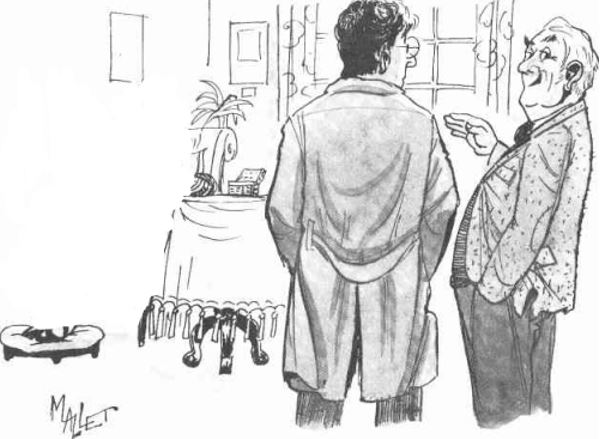

Grammar


Tenses


Present

Present Simple

Present Continuous

Present Perfect

Present Perfect Continuous


Past

Past Simple

Past Continuous

Past Perfect

Past Perfect Continuous


Future

Future Simple

Future Continuous

Future Perfect

Future Perfect Continuous


Parts Of Speech


Nouns

Countable and uncountable nouns

Verbal nouns

Singular and Plural nouns

Proper nouns

Nouns gender

Nouns definition

Concrete nouns

Abstract nouns

Common nouns

Collective nouns

Definition Of Nouns

Animate and Inanimate nouns

Nouns


Verbs

Stative and dynamic verbs

Finite and nonfinite verbs

To be verbs

Transitive and intransitive verbs

Auxiliary verbs

Modal verbs

Regular and irregular verbs

Action verbs

Verbs


Adverbs

Relative adverbs

Interrogative adverbs

Adverbs of time

Adverbs of place

Adverbs of reason

Adverbs of quantity

Adverbs of manner

Adverbs of frequency

Adverbs of affirmation

Adverbs


Adjectives

Quantitative adjective

Proper adjective

Possessive adjective

Numeral adjective

Interrogative adjective

Distributive adjective

Descriptive adjective

Demonstrative adjective


Pronouns

Subject pronoun

Relative pronoun

Reflexive pronoun

Reciprocal pronoun

Possessive pronoun

Personal pronoun

Interrogative pronoun

Indefinite pronoun

Emphatic pronoun

Distributive pronoun

Demonstrative pronoun

Pronouns


Pre Position


Preposition by function

Time preposition

Reason preposition

Possession preposition

Place preposition

Phrases preposition

Origin preposition

Measure preposition

Direction preposition

Contrast preposition

Agent preposition


Preposition by construction

Simple preposition

Phrase preposition

Double preposition

Compound preposition

prepositions


Conjunctions

Subordinating conjunction

Correlative conjunction

Coordinating conjunction

Conjunctive adverbs

conjunctions


Interjections

Express calling interjection

Phrases

Sentences


Grammar Rules

Passive and Active

Preference

Requests and offers

wishes

Be used to

Some and any

Could have done

Describing people

Giving advices

Possession

Comparative and superlative

Giving Reason

Making Suggestions

Apologizing

Forming questions

Since and for

Directions

Obligation

Adverbials

invitation

Articles

Imaginary condition

Zero conditional

First conditional

Second conditional

Third conditional

Reported speech

Demonstratives

Determiners


Linguistics

Phonetics

Phonology

Linguistics fields

Syntax

Morphology

Semantics

pragmatics

History

Writing

Grammar

Phonetics and Phonology

Semiotics


Reading Comprehension

Elementary

Intermediate

Advanced


Teaching Methods

Teaching Strategies

Assessment
She Does not Lay Eggs
المؤلف:
L.A Hill
المصدر:
Intermediate Steps To Understanding
الجزء والصفحة:
28-1
3/11/2022
1463

Mr. Hodge was a chicken farmer. He had hundreds of chickens, and sold the eggs and the meat and got quite a lot of money for them, but he lived in a very hot part of the country, and he found that his hens laid hardly any eggs in the summer. So he decided to put air conditioning into his chicken-house so that the hens would lay well all through the year and he could get more eggs and in that way earn more money.
The owner of the company which sold the air-conditioning came to see him, and when he saw Mr. Hodge's house, he thought that he might be able to persuade him to buy some air-conditioning for that too.
'Your wife would be much happier and more comfortable then, ‘he said to Mr. Hodge. But Mr. Hodge was not interested.
‘My wife doesn't lay eggs,' he said.
A Which of these sentences are true (T) and which are false (F)? Write Tor F.
- Mr. Hodge's chickens laid a lot of eggs when the weather was hot.
- Mr. Hodge wanted air-conditioning for his chickens.
- The owner of the air-conditioning company sent a man to see Mr. Hodge.
- The owner of the company wanted to sell as much air conditioning as possible.
- Mr. Hodge agreed to have air-conditioning in his house too.
- Air-conditioning in his house would not bring him more money.
B Answer these questions:
- What work did Mr. Hodge do?
- How did he earn his money?
- Why did he not get so much money in the summer?
- Where did he decide to put air-conditioning?
- Why did he decide this?
- What did the owner of the air-conditioning company hope to do?
- What reason did he give for having air-conditioning in the house?
- What did Mr. Hodge answer?
C Write these sentences. Choose the correct word or words to put in. The words are: could be earned, could earn, did not lay, put, sold, suggested, was put, was suggested, were laid, were sold.
- Mr. Hodge ... eggs and meat in the market.
- Mr. Hodge's eggs and meat... in the market.
- The chickens ... many eggs in summer.
- Not many eggs ... in summer.
- Mr. Hodge ... more money if he had air-conditioning.
- More money ... by people who had air-conditioning.
- The owner of the company... air-conditioning for the house too.
- Air-conditioning for the house too... by the owner of the company
- Mr. Hodge only... air-conditioning in his chicken-house.
- Air-conditioning ... only in Mr. Hodge's chicken-house.
 الاكثر قراءة في Intermediate
الاكثر قراءة في Intermediate
 اخر الاخبار
اخر الاخبار
اخبار العتبة العباسية المقدسة

الآخبار الصحية















 قسم الشؤون الفكرية يصدر كتاباً يوثق تاريخ السدانة في العتبة العباسية المقدسة
قسم الشؤون الفكرية يصدر كتاباً يوثق تاريخ السدانة في العتبة العباسية المقدسة "المهمة".. إصدار قصصي يوثّق القصص الفائزة في مسابقة فتوى الدفاع المقدسة للقصة القصيرة
"المهمة".. إصدار قصصي يوثّق القصص الفائزة في مسابقة فتوى الدفاع المقدسة للقصة القصيرة (نوافذ).. إصدار أدبي يوثق القصص الفائزة في مسابقة الإمام العسكري (عليه السلام)
(نوافذ).. إصدار أدبي يوثق القصص الفائزة في مسابقة الإمام العسكري (عليه السلام)


















